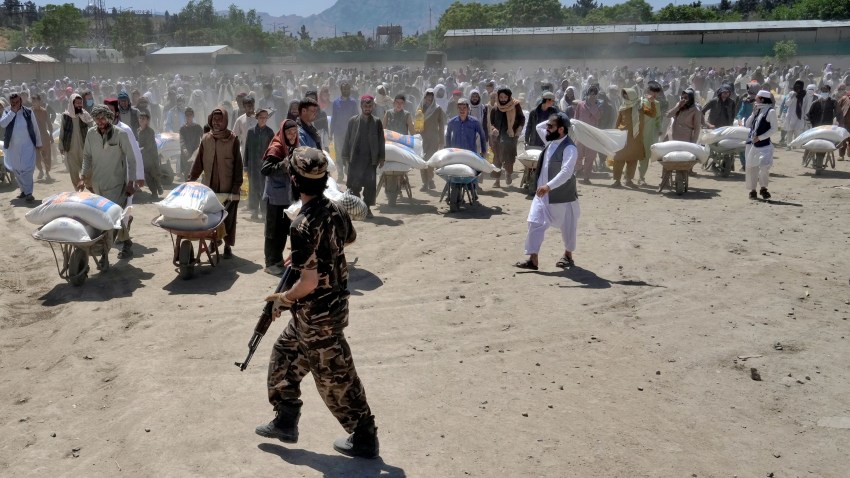Just as Americans began to gather for Thanksgiving dinner two weeks ago, the BBC reported that families in Afghanistan are selling their daughters into early marriage to pay for food and feeding their children tranquilizers and anti-depressants because the pills are cheaper than bread. According to ToloNews, Afghanistan’s unemployment rate stood at 40 percent in October. A recent Gallup poll from inside the country shows that, as they face their second winter since the Taliban returned to power in August 2021, 86 percent of Afghans say they have trouble getting enough food.
While Western governments often focus on the Taliban’s record on political freedoms and gender apartheid, access to food is also an international human right that national governments are beholden to provide to their citizens. Yet who is to blame for Afghanistan’s inability to obtain sufficient food for its citizens depends on whom you ask. The Taliban—and more than a few commentators—argue Afghanistan’s food shortage is the fault of the West, which has cut off bilateral aid and frozen Afghanistan’s foreign reserves. Western countries point out that they would loosen aid restrictions if the Taliban would allow girls to return to school, cut ties to al-Qaida and cease other highly restrictive policies that violate fundamental human rights. If anything, some observers say, current efforts to isolate the Taliban do not go far enough.
What almost every observer can agree on, though, is that this is a manufactured disaster stemming from multiple, interrelated policy-driven causes, exacerbated by drought, COVID-19 and the war in Ukraine. Ultimately, the blame game only adds a political layer to the problem, making it even more difficult to determine how to fix it.

